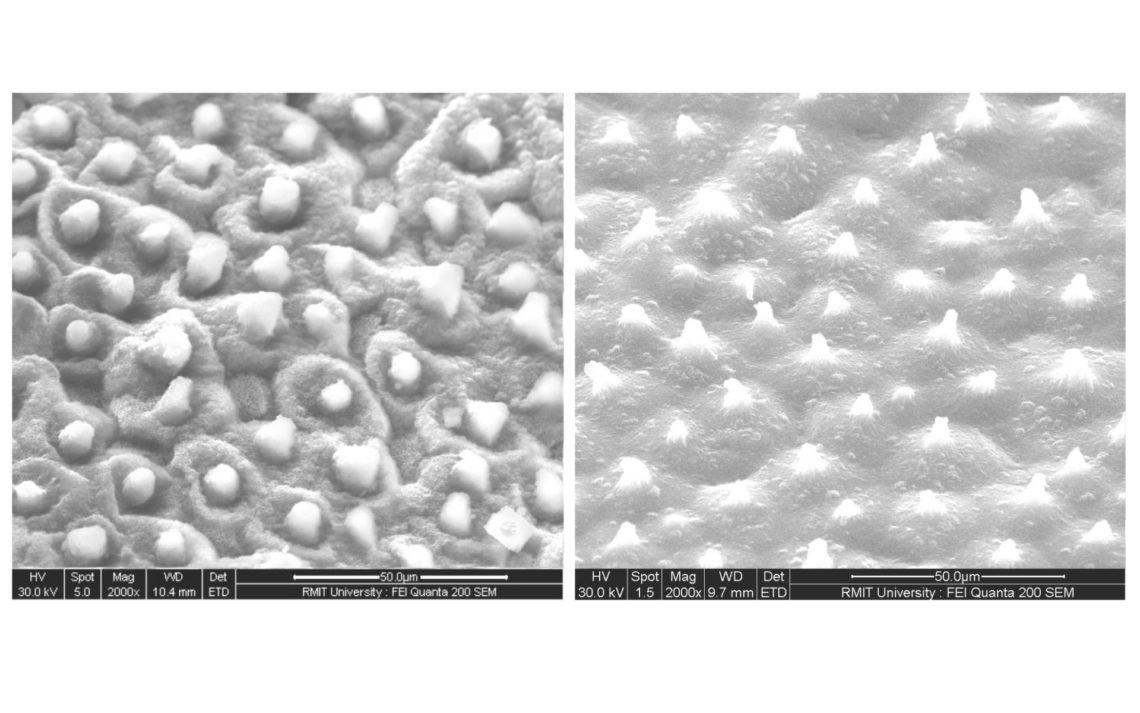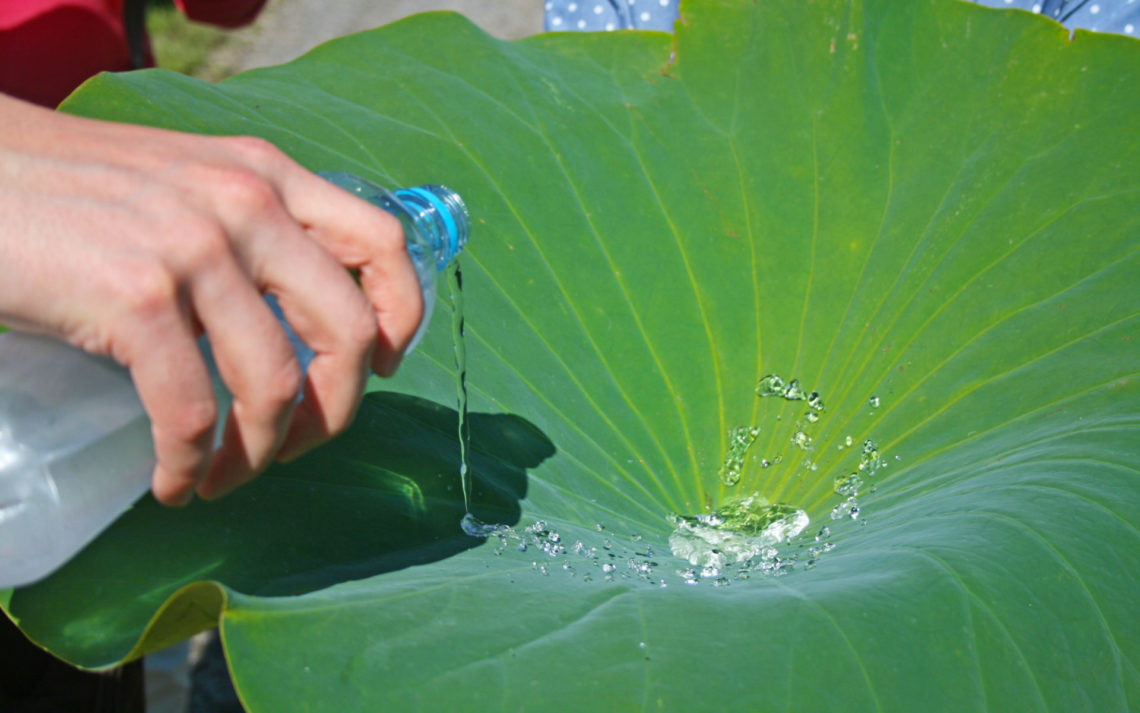Researchers at RMIT have developed an innovative self-cleaning bioplastic that repels liquids and dirt, is affordable to manufacture and breaks down quickly once composted.
The bioplastic is ideal for fresh food and takeaway packaging, says RMIT PhD researcher Mehran Ghasemlou, lead author of the study published in Science of the Total Environment.
The bioplastic could be used in food production, beauty products, or as an alternative to agricultural mulch plastic films that are used in crop production.
“We need a bioplastic that stops moisture getting in and spoiling our products (food, medical and so on), but we also want that plastic to compost at its end-of-life,” Mr Ghasemlou told The Green List.
“We’ve replicated the phenomenally water-repellent structure of lotus leaves to deliver a unique type of bioplastic that precisely combines both strength and degradability,” he said.
So what does plastic have to learn from lotus leaves?
A lot, apparently.
Lotus leaves are blessed with some of the most water-repellent surfaces on earth, and for this reason are almost impossible to get dirty.
Zoom in on the structure of the leaf, and you will see tiny pillars topped with a waxy layer that means any droplet landing on the leaf will simply roll off, sweeping up dirt as it slides down.

The structure of a lotus leaf makes it water-repelling and self-cleaning.
It’s this natural self-cleaning and water-repellent material that inspired RMIT team of science and engineering researchers to create a synthetically engineered bioplastic.
The bioplastic is made of starch and cellulosic nanoparticles that mimic the structure of lotus leaves and also break down once in soil.
The surface of the bioplastic is imprinted with the same pattern as a lotus leaf, and then coated in a protective layer of PDMS, a silicon-based organic polymer.
Starch and cellulose are cheap and widely-available raw materials, which means that this bioplastic should have low production costs. They are also biodegradable materials.
“Through our bio-inspired engineering that mimics the ‘lotus effect’, we have delivered a highly-effective starch-based biodegradable plastic,” Ghasemlou said.
The researchers say the bioplastic retains its self-cleaning properties after being scratched with abrasives and exposed to heat, acid and ethanol.
“Plastic waste is one of our biggest environmental challenges but the alternatives we develop need to be both eco-friendly and cost-effective, to have a chance of widespread use,” Ghasemlou said.
“We designed this new bioplastic with large-scale fabrication in mind, ensuring it was simple to make and could easily be integrated with industrial manufacturing processes.”
The bioplastic could be used in food production, beauty products, or as an alternative to agricultural mulch plastic films that are used in crop production.
“Our new water-repellent bioplastic can not only effectively block water and keep a crop product safe from unexpected rains, but it can also safely biodegrade into the soil after use.”

The structure of a lotus leaf makes it water-repellant and self-cleaning.
You can watch the video demonstration here: https://www.youtube.com/watch?v=iryIxrMsiVI
